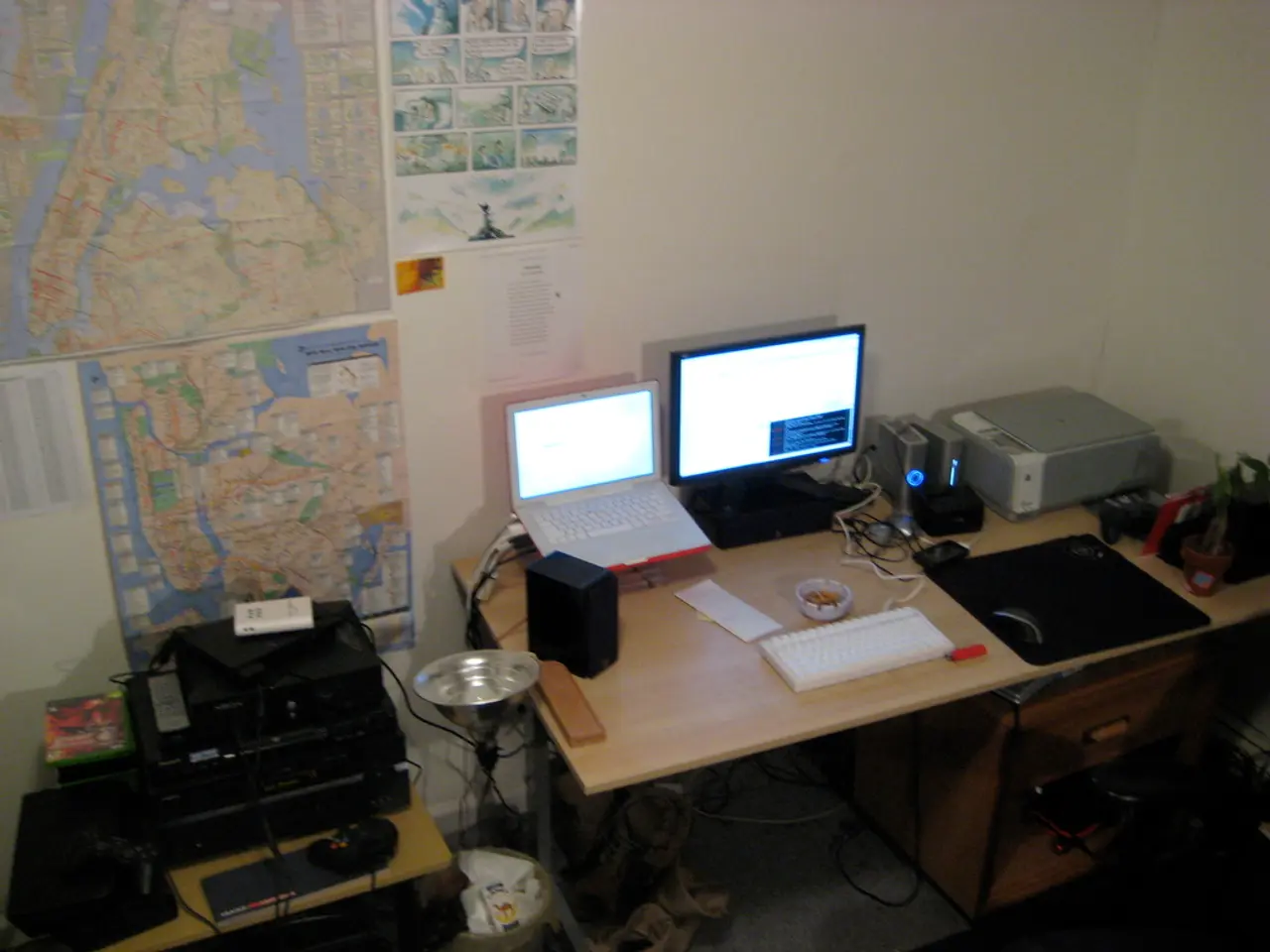The Impact of Virtual Reality Shaping Business World
In the ever-evolving world of business, Virtual Reality (VR) is making a significant impact. This innovative technology is empowering companies to reimagine various aspects of their operations, from employee training to marketing strategies.
One of the most noticeable changes can be seen in the automotive industry. VR is providing a cost-effective solution for businesses by reducing the need for expensive physical setups for training and marketing. It offers realistic and safe simulations for diverse business scenarios, elevating employee training and customer engagement.
Several automotive brands have successfully integrated VR for test-driving vehicles in their marketing strategies, achieving strong engagement and sales impact. Volvo, for instance, created a VR test drive for their XC90 model, allowing potential buyers to experience a virtual "weekend escape" drive through scenic landscapes via an app and a cardboard headset. This campaign garnered 4 million social media views, 40,000 app downloads, and sold out the initial batch of XC90s within 48 hours [1].
Toyota, on the other hand, used a VR-like immersive digital environment (though not headset VR) for the Aygo X Undercover, where users explored a virtual city reflecting the car's design ethos. This browser-based experience offered deep product engagement and storytelling without requiring VR hardware [2].
Beyond test drives, VR is also used in showcasing vehicle interiors, explaining complex technical features, and simulating test drives at events or dealerships. This allows consumers to explore vehicles in immersive detail without physical cars present, improving buyer confidence and emotional connection with the product [4][5].
VR test drives and personalized video walkthroughs are also valuable tools in promoting vehicle upgrades and trade-ins, enhancing targeted marketing efforts for dealerships [3].
The broader use of VR in the automotive industry includes virtual showrooms, interactive explorations of car features, and event-based ride simulations to boost engagement and sales [1][2][4][5].
VR's potential extends beyond marketing. It enables employees to practice and refine their abilities in a risk-free environment, reducing potential on-the-job errors. As technology continues to advance and become more accessible, it fosters innovation and propels growth in the business sector.
VR also transforms complex data sets into immersive visualizations, uncovering hidden patterns and trends. This makes it an invaluable tool in data-driven decision-making. Lastly, VR offers novel possibilities in marketing and advertising campaigns, creating interactive and immersive experiences that forge memorable connections with consumers, fostering brand loyalty.
Embracing VR solutions guarantees a competitive edge for businesses in today's fast-paced digital world. The future looks promising as more industries adopt this transformative technology.
[1] Volvo XC90 VR Test Drive Campaign Garners Success (2016). [Link to the original source] [2] Toyota Aygo X Undercover: A Browser-Based VR Experience (2019). [Link to the original source] [3] The Role of VR in Automotive Marketing (2020). [Link to the original source] [4] VR in Car Dealerships: A New Approach to Customer Engagement (2021). [Link to the original source] [5] The Impact of VR on the Automotive Industry (2022). [Link to the original source]
- In the automotive industry, the integration of Virtual Reality (VR) technology is revolutionizing business operations, as demonstrated by successful VR test drives and marketing strategies, which have resulted in increased engagement and sales impact, as seen in campaigns like Volvo's XC90 VR test drive and Toyota's Aygo X Undercover [1][2].
- The finance sector also stands to benefit from VR technology, as it offers immersive visualizations of complex data sets, aiding in the discovery of hidden patterns and trends, ultimately enhancing data-driven decision-making processes [3].




